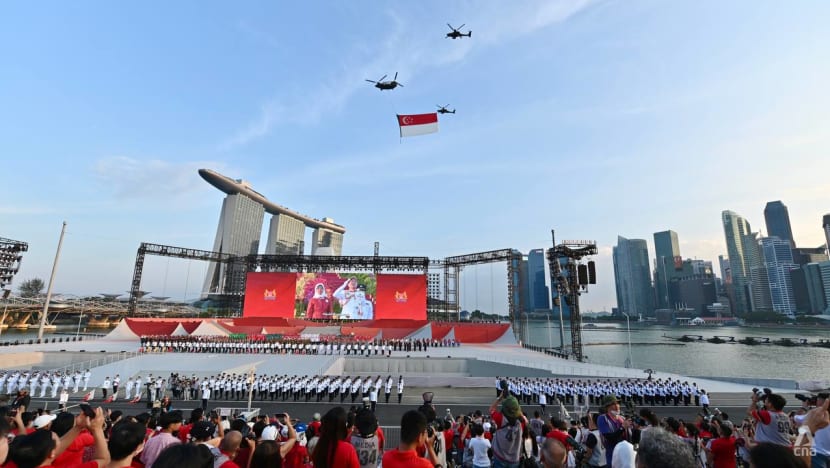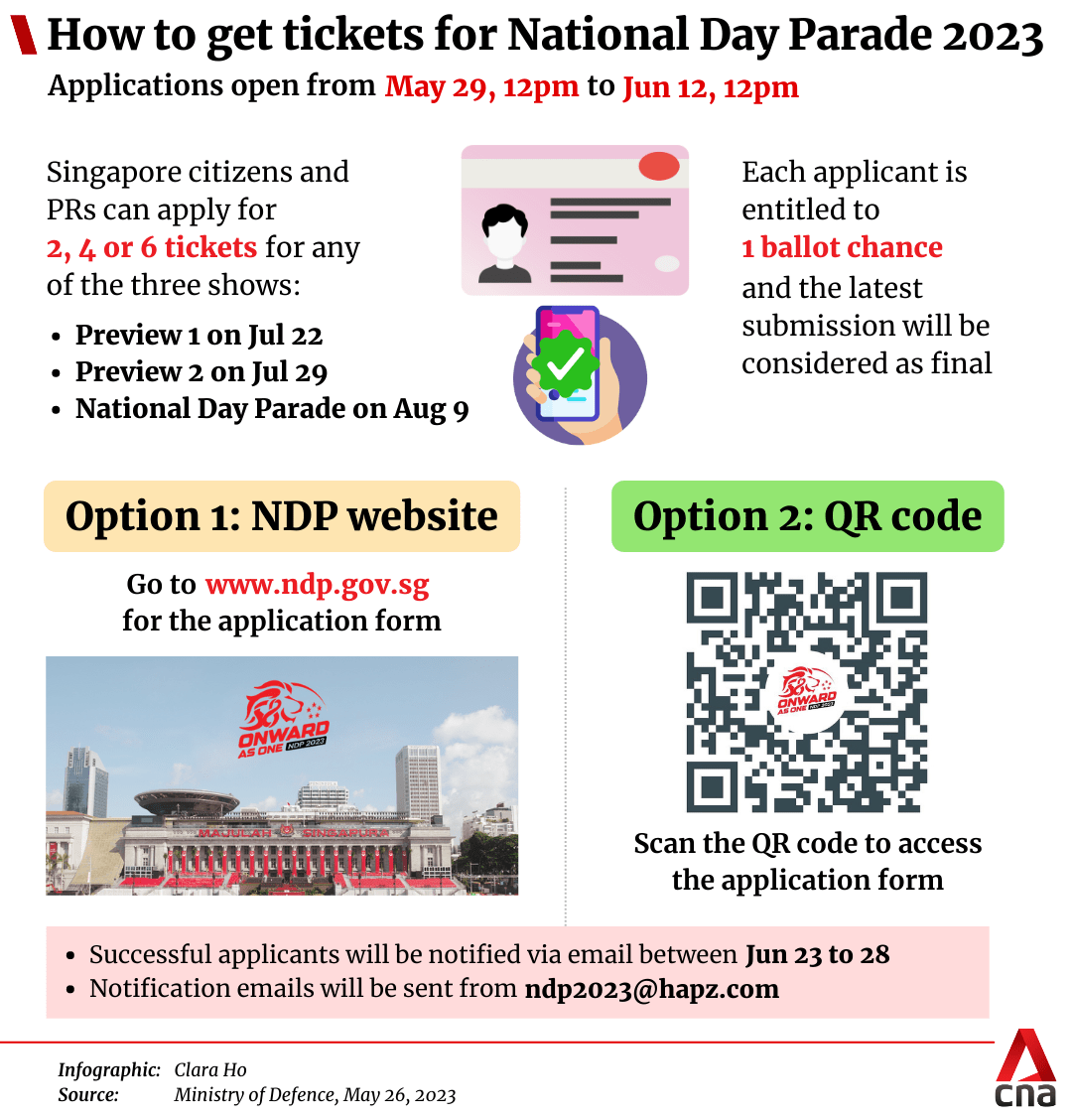Applications for tickets to this year’s National Day Parade (NDP) and its two preview shows are due to open next Monday, May 29, offering the public a chance to join in the grand celebrations. The main event will take place on August 9, with two preview shows scheduled for July 22 and July 29.

Singapore citizens and permanent residents can apply for two, four, or six tickets to partake in the grand festivities, as announced by the NDP 2023 executive committee this Friday. The application process will commence from noon on May 29 via the official NDP website or by scanning a designated QR code. The application window will close at noon on June 12.
It’s important to note that the ticket allocation isn’t first-come-first-served, but decided via an electronic balloting system. The committee has urged caution when filling out the application forms to prevent fraudulent attempts to extract personal information, advising applicants to avoid forms from unverified links and sources.

“Each applicant will only be entitled to one ballot chance. Only the latest submission will be considered as final, and all previous entries will be excluded from the balloting process,” the committee stated. Furthermore, it clarified that each ticket permits entry for only one person, requiring all children, including infants, to possess a valid ticket for admission.
Successful applicants will be informed between June 23 and June 28 via email, dispatched from ndp2023@hapz.com. The committee has warned against phishing attempts, urging the public to be wary of similar notifications from other email addresses.
This year’s NDP, themed “Onward as One,” will be held at the Padang for the first time since 2020. Preceding the main event, community celebrations will be held on August 5 and 6 in stadiums at Bedok, Jurong West, Toa Payoh, Woodlands, and Our Tampines Hub.
The theme aims to encourage Singaporeans to face the future confidently and rally together to build a shared future as one united nation. “We look forward to seeing Singaporeans unite around our shared future, moving forward as one,” said Colonel Terence Ho, chairman of the executive committee.
With a host of exciting performances and activities planned to celebrate the country’s multicultural identity and resilience, this year’s NDP promises to be a captivating spectacle of national pride, unity, and optimism as Singaporeans, together, embark on another year of progress and prosperity.


